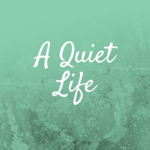
Marlene is a new friend to me and as I say in the interview I fell in love with her voice when I heard her read the prayers at church. She has worked as a Speech and Drama teacher and we talk about that work, and about her love for the performing arts. We talk about how the poetry and plays that she works with relate to our everyday lives, and how we can learn from them.
Marlene is now retired, but she finds community wherever she can, and reaches out to people in many different ways – in her own community, in the church, in the local nursing home, and through teaching in U3A.
https://en.wikipedia.org/wiki/Clive_Sansom
https://www.amazon.com/Witnesses-Clive-Sansom/dp/0416083609
The writing group Marlene mentions is the Creative Space group that I lead on Tuesday afternoons. Feel free to send me an email at ruth@ruthamos.com.au for more details if you live in southern Tasmania.
Alpha is a great training tool for Christians and searchers alike.